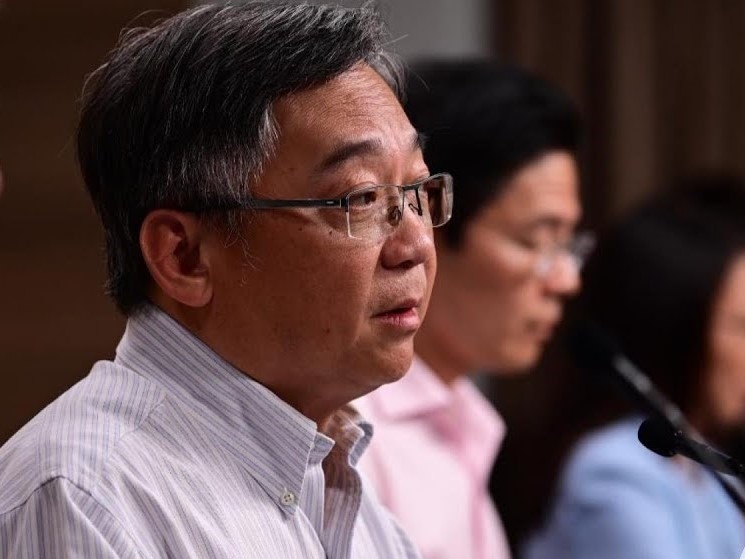Singapore — The co-chairman of the multi-ministry task force on Covid-19, Mr Gan Kim Yong, said on Friday (July 17) that Singapore must be prepared for a second wave of Covid-19 cases but added that it was preventable if everyone played his part.
During a press conference, Mr Gan explained the current Covid-19 situation in the country, focusing on what is being done to address community cases. Since the easing of the circuit breaker, Mr Gan noted that community cases had increased yet remained at a low average of 12 per day in the past week, reported channelnewsasia.com.
He mentioned that half of the confirmed community cases in the last two weeks were linked and detected as a result of contact tracing or proactive screening. “We are always more concerned about the unlinked cases,” said Mr Gan, who cited that about seven in ten of the unlinked cases were asymptomatic. At the same time, almost half were likely to be past infections because they were found positive in serology tests.
“They would probably not have been detected if not for our proactive screening approach as they are asymptomatic,” said Mr Gan. He mentioned that such cases would unlikely see a doctor due to the lack of symptoms and would not have been detected otherwise. “Therefore, the number of cases we see is actually somewhat dependent on our screening approach.”
Mr Gan also disclosed that a large proportion of the unlinked community cases were linked to construction and related sectors. These cases are classified as unlinked because they cannot be identified to a specific individual or cluster, said Mr Gan.
Early detection through ARI tests
With the focus placed on symptomatic unlinked cases, Mr Gan shared that the authorities are proactively testing and screening acute respiratory infection (ARI) cases. “If these cases start rising, it could be an early signal to us that there may be an increase in the underlying transmission in the community.”
On average, the authorities are testing about 2,400 ARI cases per day, he said. “Even with this rigorous testing, the number of unlinked Covid-19 cases detected through this ARI screening in the community has remained stable and continues to be in the low single digits. This suggests that the prevalence in the community remains low,” he confirmed. “But this is not the time to celebrate and be complacent. We are certainly not out of the woods yet.”
Useful lessons to be gleaned from other countries
Mr Gan mentioned South Korea, Australia and Japan as examples of countries experiencing a resurgence of cases a few weeks after lifting strict social distancing measures.
“We must be prepared for a second wave too, but we must do our best to avoid it if we can,” said Mr Gan. “There are useful lessons we can glean from their experience to avoid a similar scenario in Singapore.”
He noted that while many Singaporeans and organisations are keen for more flexibility and further relaxation, some settings and activities are more susceptible to transmission, such as those where there is close and prolonged contact among individuals. These include workplaces, religious gatherings, as well as nightlife establishments, said Mr Gan. “That is why, in Singapore, we have taken a cautious approach in easing restrictions for some activities that we know to be of higher risk.”
With the significant expansion of economic activities and social interactions since the beginning of phase two, Mr Gan noted that an increase in the number of cases is expected. “What is important is to detect these cases early and ring-fence them to prevent further transmissions and the formation of large clusters,” he added. “The second wave is preventable if everyone plays our part. I believe that if anyone can do it, Singaporeans can.” /TISG

